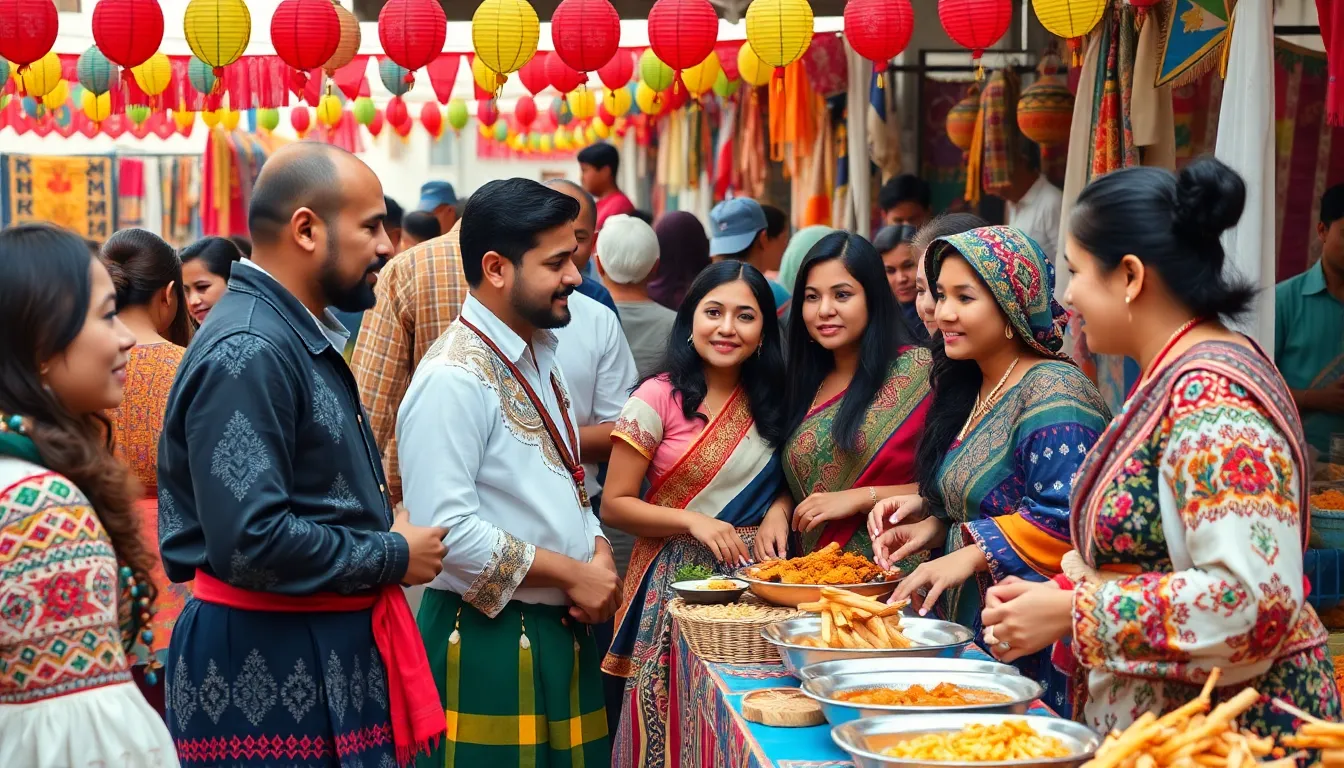Cultural shock can feel like diving headfirst into a pool of ice-cold water—unexpected and a little jarring. Imagine stepping off a plane and into a world where your morning coffee comes with a side of puzzlement. From bewildering customs to quirky social norms, navigating these unfamiliar waters can be both hilarious and eye-opening.
Table of Contents
ToggleUnderstanding Choque Cultural
Choque cultural represents the disorientation individuals feel when immersed in a different culture. This phenomenon often evokes varied emotional responses.
Definition of Choque Cultural
Choque cultural refers to the emotional and psychological impact of adjusting to a new culture. People may experience confusion, anxiety, or frustration upon encountering foreign customs and practices. This adjustment often highlights differences in behavior, communication styles, and societal norms. The experience can lead to both personal growth and deeper understanding of cultural diversity. Examples of choque cultural include unfamiliar greetings, dining etiquette, and language barriers.
Historical Context
Choque cultural has roots in globalization and increased migration patterns. Historically, colonization and trade introduced diverse cultures to new regions. As people migrated, they faced varying degrees of cultural adjustment. In the 20th century, increased travel and communication accelerated cultural exchange. With these shifts, individuals began to share their customs more broadly, resulting in enriched experiences but also heightened potential for cultural shock. Understanding these historical shifts provides insight into how cultures interact today.
Causes of Choque Cultural

Cultural shock stems from several interrelated causes, with globalization and mobility being significant factors.
Globalization and Mobility
Globalization significantly enhances connectivity across nations. As people travel more frequently, they encounter diverse customs and practices. This movement leads to contrasting expectations and reactions. Individuals may experience discomfort in adapting to different societal norms and behaviors. Structural changes in economies create environments where cultures interact. Such interactions can lead to misunderstandings when traditional values clash with new norms. Immigration patterns further illustrate this, as newcomers may face challenges in integrating into existing social frameworks.
Cultural Exchange
Cultural exchange occurs when different societies share ideas, languages, and traditions. Exposure to unfamiliar cultural elements often generates both curiosity and confusion. Artists, musicians, and chefs frequently introduce their heritage, enriching experiences for everyone involved. Educational programs also play a role in this exchange, connecting students from varied backgrounds. Adaptation becomes necessary as individuals navigate new cultural landscapes. Emotional responses vary; some embrace change, while others may resist, causing tension. Addressing these dynamics fosters a deeper understanding of the world and its diverse cultures.
Effects of Choque Cultural
Cultural shock significantly influences individuals, sparking a range of psychological and social effects. Awareness of these impacts aids in navigating the challenges that arise during intercultural experiences.
Psychological Impact
Experiencing choque cultural can lead to anxiety and confusion. Individuals often feel overwhelmed as they struggle to adapt to unfamiliar customs. Stress levels may increase due to feelings of isolation. Emotional reactions range from frustration to sadness, reflecting the intensity of the adjustment process. Addressing these reactions is essential for personal growth. Building coping mechanisms helps individuals manage their emotions effectively. Recognizing these potential impacts lays the foundation for resilience and adaptability.
Social Implications
Social interactions typically shift during periods of cultural shock. Misunderstandings often occur when communication styles differ. Relationships may strain as individuals navigate contrasting norms and values. Newcomers might experience feelings of exclusion, impacting their ability to build connections. However, these challenges can lead to meaningful exchanges and deeper insights about diverse societies. Adaptation fosters greater cultural awareness and appreciation for differences. Engaging in social activities promotes integration and helps individuals form lasting bonds within their new environment.
Coping Strategies
Coping strategies play a crucial role in managing cultural shock. Individuals must employ effective methods to navigate the challenges that arise during this adjustment period.
Personal Adaptation Techniques
Personal adaptation techniques include staying open-minded and embracing new experiences. Exploring local customs facilitates a deeper understanding of cultural nuances. Keeping a journal helps track emotional responses and personal growth throughout the journey. Building routines provides a sense of stability amid the chaos of cultural adjustment. Establishing connections with locals or expatriates offers additional support and resources during this transition. Engaging in local activities promotes immersion and encourages adaptability.
Community Support Systems
Community support systems significantly aid in overcoming the effects of cultural shock. Friends and family provide essential emotional support, even from afar. Joining cultural or social groups creates opportunities for shared experiences and fosters connection. Local organizations often offer resources, workshops, and events tailored for newcomers. Utilizing online forums and social media groups can serve as platforms for exchanging advice and experiences. Seeking professional help, such as counseling, can address specific challenges and promote mental well-being.
Cultural shock is a complex experience that can lead to both challenges and opportunities. As individuals navigate unfamiliar environments they often find themselves on a journey of self-discovery and growth. Embracing the discomfort of choque cultural can foster resilience and adaptability while enriching one’s understanding of diverse perspectives.
By employing effective coping strategies and seeking support from local communities or fellow travelers, individuals can transform the initial feelings of confusion into a rewarding adventure. Ultimately, the experience of cultural shock serves as a powerful reminder of the beauty and richness found in the tapestry of global cultures.





